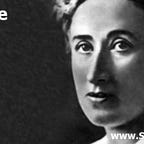Contemporary identity politics is plagued with many regressive ideas. One among them is a prevalent notion that only people of a particular identity have the (moral) right to express opinions on issues concerning that identity. For example, only dalits should express opinions on dalit issues, and only muslims should express opinions concerning muslims. Similar views plague feminism as well. There are indeed reasons to be skeptical of ‘others’ particularly when there are lots of seemingly progressive opinions/discourse with hidden agendas and when there is appropriation/hijacking of discourse. Let us now forget intersectionality and discuss one example, discourse on caste, dalit politics, etc. There are varied opinions ranging from Pa. Ranjith’s view that caste discourse should essentially include non-dalits to views that non-dalits should be shunned. These opinions become complex when they are contextualized and more so when intersectionality (including class) is also taken into account.
Non-dalits are often regarded with skepticism when it comes to caste discourse and one (dalits and non-dalits alike) becomes extraordinarily curious about the identity of the person whenever an opinion is expressed. Most dalits can empathize with this skepticism. Everyone has one’s own moral compass to create a checklist to include a person in the discourse, to validate her/his opinion, etc. and in most cases the only option in the checklist being the caste identity. This somehow creates/endorses an identitarian umbrella and completely refuses to introspect. A dalit who views every opinion from (sometimes supposed) non-dalits with skepticism, on the other hand is completely oblivious to caste dynamics within dalits. Arunthathiyars would be well within their rights to create a separate identitarian umbrella and shun the other dalits going by the above logic, a position with which most arunthathiyars would empathize, but most other dalits would find hard to understand. In this regard, one can read about how 3% reservation for arunthathiyars came about. One can go on and on with this game.
Secondly, if one examines the identitarian umbrella i.e. dalits, one will find that it is ideologically as heterogenous as the rest of the society. Many problems that afflict the dalit social and political discourse are intentionally left unaddressed by the dalits; this reluctance/negligence also in most cases stemming from an identitarian perspective. Examples of these problems being casteism within dalits, appropriation of other oppressed voices within the ‘identity’, dalit capitalism/class discourse, sorry state of dalit (electoral) politics and last but not the least, tendency to mindlessly support anything that comes with an identity ‘dalit’ without criticism (one great example is Mayawati). Coming back to the discussion, one can create umpteen number of ‘morally’ justified ‘identities’ within dalits. For example, a poor dalit vs rich dalit, creamy layer wrt reservations/severity of oppression vs non-creamy layer, casteless vs casteist, sincere vs insincere, etc. The last one may look ridiculous, but there have been criticisms on some dalits including artists and politicians questioning their sincerity and they have been accused of using dalit issues to further their career/agenda. Thus, there is a need for analysis/introspection and discourse within the community as it is not devoid of casteism and other regressive ideas and to make it egalitarian.
When a non-dalit voices her/his opinion on caste, she/he can be either sincere or insincere. No doubt sinister agendas need to be exposed, but one doesn’t need to dwell on the identity whenever an opinion is expressed. Real progressive checklists aren’t based just on identity and aren’t used to exclude people and thereby their opinions irrespective of their value. Rather they stem from deep introspection and analysis, and they aim to contribute to creating a casteless society. Rejecting people based on identity doesn’t rely on annihilation of caste and is equivalent to acknowledging that there can never be a casteless society. Thus, while criteria for being/becoming truly anti-caste can be debated and discussed, the opinions of people who don’t fulfil these criteria needn’t be rejected. It is always worthwhile to remember that these criteria are subjective and there is a possibility that only a very few dalits/non-dalits would fulfil some extremely progressive checklists and applying the famous logic of exclusion would only annihilate discourse and not caste.
Moving now on to really complex situations where progressive ideas are expressed with ugly agendas, let us consider an example. An outwardly leftist non-dalit who talks about class issues within dalit community and criticizes dalit capitalism, or a non-dalit seemingly devoted to dalit cause who talks about creamy layer within SCs. To digress a little and give another example, an outwardly leftist brahmin criticizing caste atrocities by other dominant castes on dalits. Let us assume all of the above are insincere. These are mostly met with mindless backlash which is sometimes understandable given the vile intentions behind the discourse, but never with introspection or a discourse on these relevant issues on any platform. In fact, these should have been raised and debated by the dalits, the inner reservations for arunthathiyars should have been proposed and advanced by the dalit community. Similarly, the caste atrocities against dalits should be extensively debated by the now dominant castes. One doesn’t avoid addressing issues but extensively debate them to prevent hijacking. Failing to do so is utter failure of whatever ideology one follows. In short, even when opinions are expressed with vile intentions and the most casteist of persons, it is worthwhile to remember that these voices are there because of problems plaguing identity politics and to silence them is to debate these issues louder than them.
